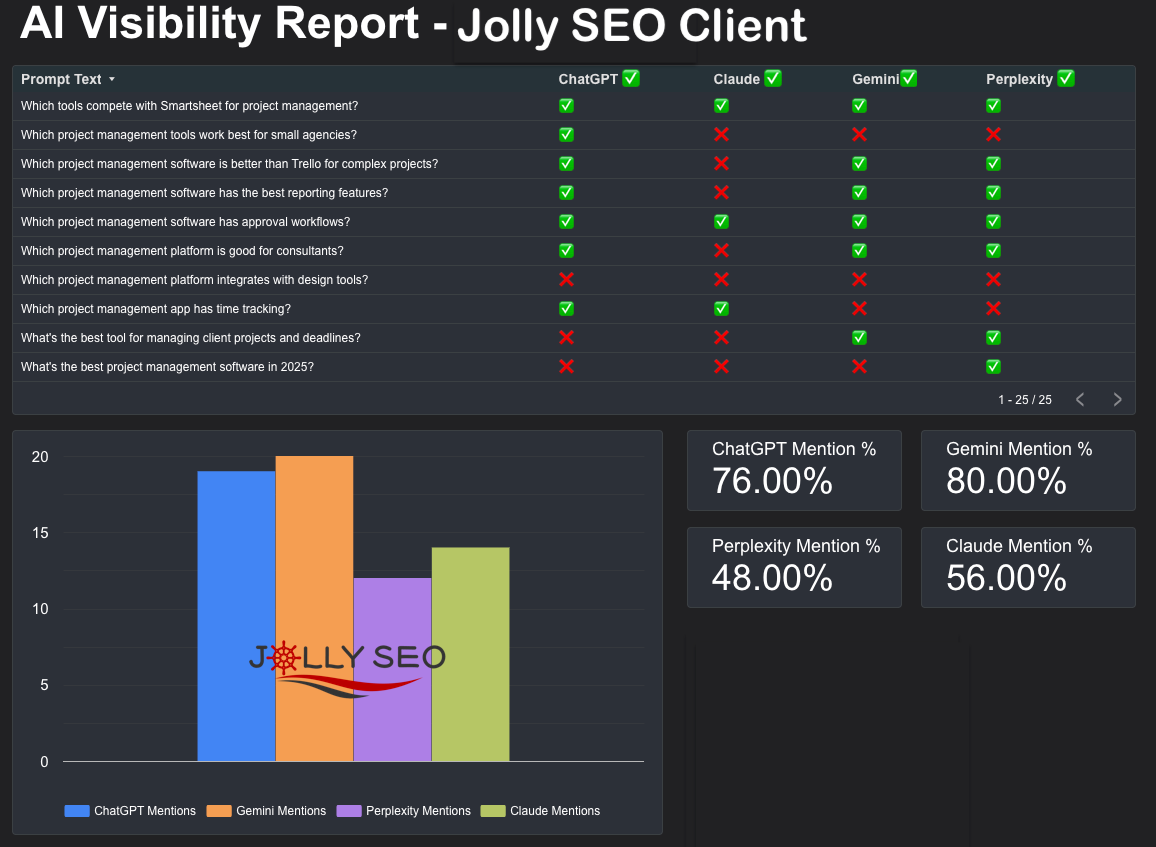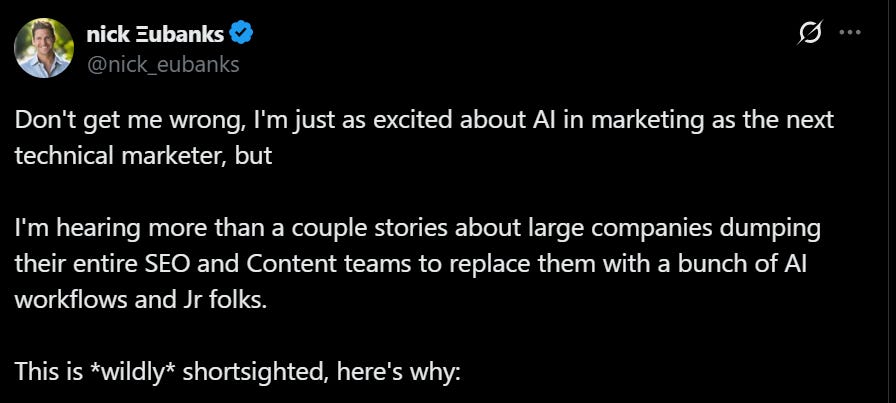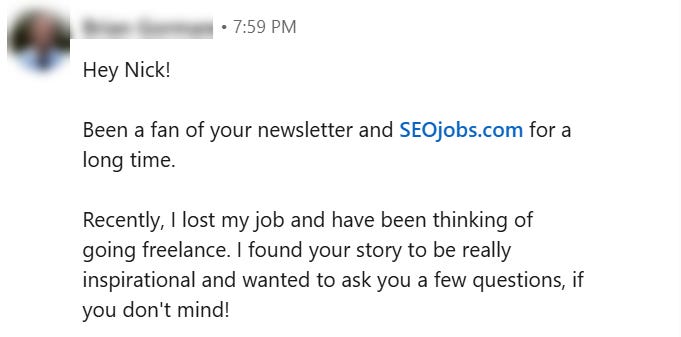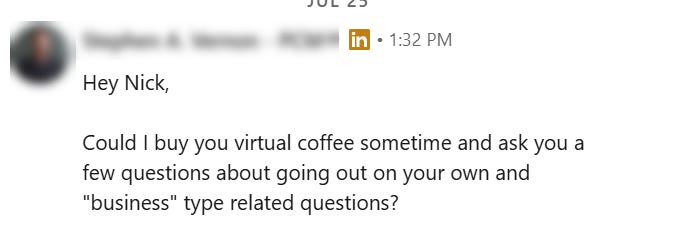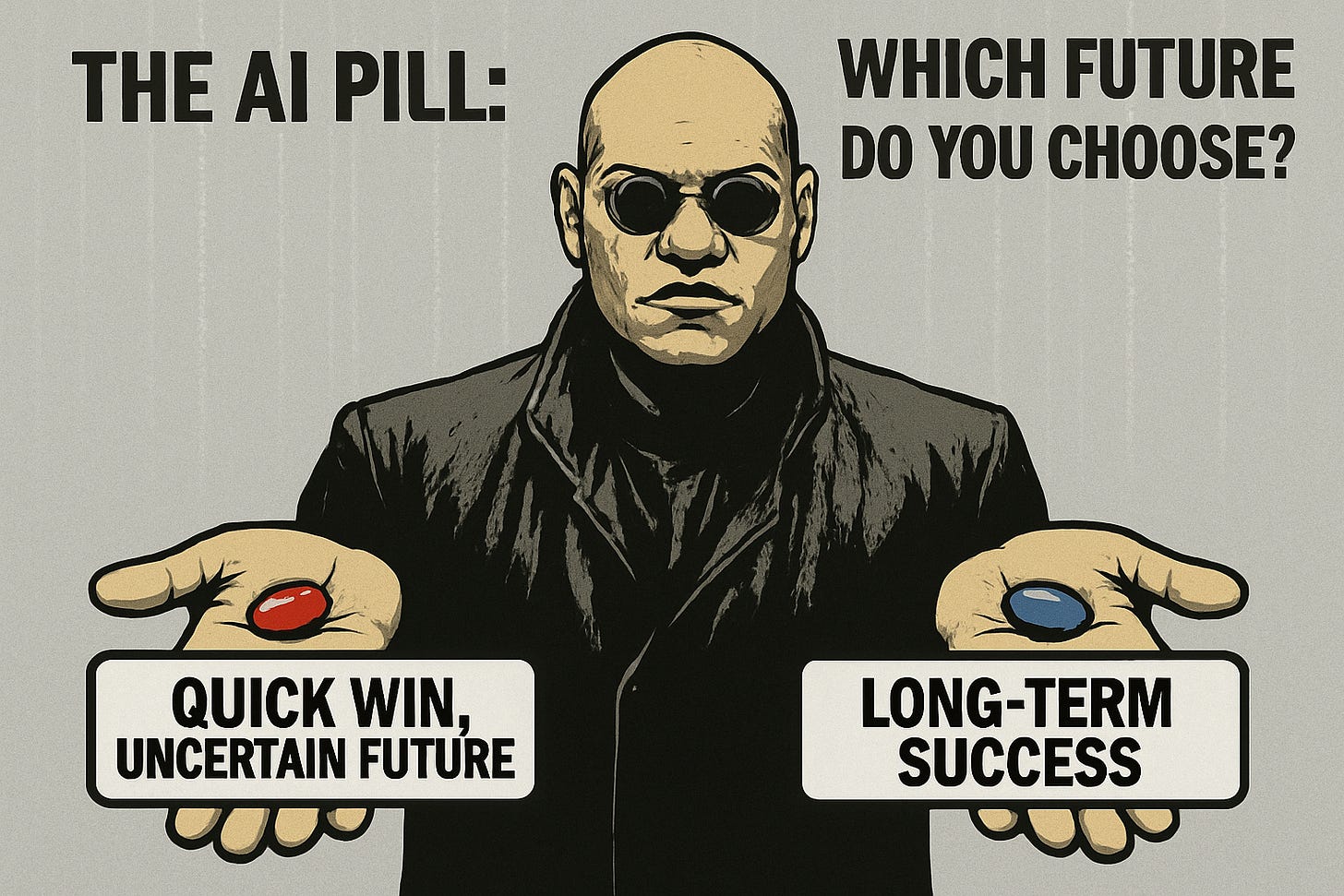Dear C-Suite: Stop Betting Your Future on the AI Shortcut
Leaders chasing today’s cost cuts are sacrificing tomorrow’s growth...and your competitors are happy to let you.
This week’s #SEOForLunch is sponsored by JollySEO.comI’ve been biting my tongue on this for months. At first, I wanted to “play nice” and not rush to judgment after seeing a few companies jump the gun. But I can’t hold back anymore, and since this is my own damn newsletter, here we go.
Leaders! Stop treating AI like your “EASY BUTTON.”
Look, AI is incredible. I use it every day. You use it. It’s changed how fast we can get things done, and when used right, it’s a powerful tool.
But here’s the problem: too many leaders aren’t using it as a tool. They’re trying to let AI think for them, make decisions for them, and replace the people who actually drive businesses forward. And to save a dollar, they’re laying off those people.
That short-term decision will have brutal long-term consequences.
Thank you to this week’s #SEOForLunch sponsorship partner, Jolly SEO
Is your brand appearing in LLMs & Google?
Co-citations with backlinks have driven traditional SEO (Google) for years. In GEO (LLMs), backlinks are optional, but brand co-citations are more important than ever.
Jolly SEO has earned clients over 25,000 branded media placements. These media placements continue to drive results for brands in both traditional SERPs (Google) and the next generation of search, including ChatGPT, Perplexity, Claude, and Gemini.
Want your brand mentioned in Google and LLMs?
Get Your AI Visibility Report Today
Let’s Talk The State of SEO Roles (it’s not good)
I’d be lying if I said I didn’t want to get filthy rich sitting on the couch, binging Netflix, and demolishing a tub of cookie-dough ice cream. Who wouldn’t?
But here’s the reality: cutting staff looks fantastic on a balance sheet today. Even an intern costs more than a monthly subscription to your favorite AI tool. And we’ve seen this movie before—first it was content teams getting slashed (how many “CNN lays off staff, replaces them with AI” headlines have we scrolled past?)
Now, in 2025, it’s not just writers. SEOs, paid media pros, analytics teams, and whole marketing departments—are taking a collective hit.
Here’s the proof.
Lily Ray shared the horror stories she’s hearing: companies gutting SEO teams and replacing them with AI.
Nick Eubanks echoed the same trend: entire SEO and content departments were cut, replaced by AI workflows, and junior staff.
It’s not just industry chatter. In the study I co-published with the Previsible team, we reported a sharp decline in SEO roles in 2024. It’s not much better here in 2025.
And it’s personal. I’ve lost count of the DMs, Slack pings, and emails I’ve received from people who’ve been laid off or are bracing for it. Entire teams let go. Individuals are scrambling to find work. The “writing on the wall” isn’t subtle anymore.
And let’s be clear: this isn’t just AI replacing “lazy SEOs.” Nobody is safe when leadership gets addicted to cost-cutting.
Here are just a few real messages I’ve received in the past month:
This is the domino effect nobody talks about. First, SEOs are laid off. Then they flood into freelancing (been there, done that). And now even freelancers, the folks who were supposed to be “safe,” are telling me things have slowed way down.
And here’s the thing: none of this should surprise us.
That’s where we get into The Illusion of Short-Term Wins.
The AI Shortcut Myth
Here’s the biggest lie being sold to leadership right now: that AI is some kind of instant replacement for people and process. Push a button and poof, out comes the work that used to require a team, for pennies on the dollar.
Sounds impressive, right? No. It’s a fantasy, one that too many want to believe in.
AI doesn’t bring strategy. It doesn’t understand your business, your customers, or your competitive landscape. It can churn out words, but it can’t tell you which words actually matter. The words behind a human-generated strategy that drives growth, answers fundamental questions, and builds trust with customers.
And let’s not gloss over the risks: compliance issues, brand damage, and the kind of sloppy mid-quality output that erodes credibility fast.
Once that trust is gone, good luck buying it back.
Meanwhile, your competitors who don’t take the shortcut, yes, the same ones you mock for not “getting it.” They are keeping and developing talent while utilizing AI as an accelerator, not a replacement. And while you’re busy patting yourself on the back for cutting costs, they’re quietly setting themselves up to dominate your industry.
Who’s laughing now?
“Nick, you’re just pissed because you’re an SEO. You don’t get it. Nobody gets it. I’ve got this all figured out. All hail AI!”
Cool story. But let’s talk about what happens after the confetti settles and those short-term ‘savings’ come back to haunt you.
Long-Term Damage
Here’s the truth: short-term “savings” have a way of turning into long-term disasters. The invisible cracks you create today become craters tomorrow.
Institutional knowledge is gone. When the people who built your playbooks, processes, and historical context walk out the door, they take it all with them. Good luck rebuilding it with Gemini scraping Reddit threads for “strategy.”
Recovery gets harder. Slower than you think. You might look like a hero today, but when the board demands growth, you’ll be clawing for years to get back to baseline…if you ever do.
Competitors don’t wait. While you’re busy “optimizing costs,” the companies that kept their teams and used AI to augment instead of replace are running laps around you. They’re not looking back.
The race to the bottom. Once you’ve gutted expertise and credibility, the only card left is competing on price. That’s not a strategy. That’s survival.
The long-term damage isn’t hypothetical. It’s inevitable. And by the time leadership finally wakes up, the competitors you mocked for “not getting it” will be salivating as they watch you slide into bankruptcy.
What Strong Leaders Do Instead
Look, I get it. The stress you’re under is real. Politics, economics, and technology have shoved leadership into “win now” mode, at any cost. Shareholders want numbers. Boards want growth. Everyone wants results yesterday.
But here’s the reality: you don’t have to solve this alone.
You already have teams who understand where efficiencies can be found and how to apply AI responsibly. Tap into them. Let your teams show you where AI can bridge the gap without mortgaging the business’s future or handing out pink slips.
The leaders who actually win aren’t the ones gutting teams and worshipping at the altar of AI efficiency. They’re the ones who balance efficiency with investment and get the most from the talent they already have.
Maybe they’re not hiring right now, and that stings, but they’re keeping their existing people, and using AI to augment, not replace.
They communicate a clear vision because they know layoffs kill morale faster than any bad quarter ever could. And they think in quarters and years, not just tomorrow’s share price.
The winners over the next 3–5 years won’t be the companies chasing the fastest cuts. They’ll be the ones who treat AI as a tool, not a shortcut, all while doubling down on people, expertise, and trust. The things AI will never replicate… but your customers will always demand.
This is your red pill/blue pill moment.
Red pill: you chase efficiency, cut teams, and celebrate your short-term “victory.”
Blue pill: you invest in people, use AI as a tool, and build a future no shortcut can replicate.
The future of your company depends on which pill you take.



